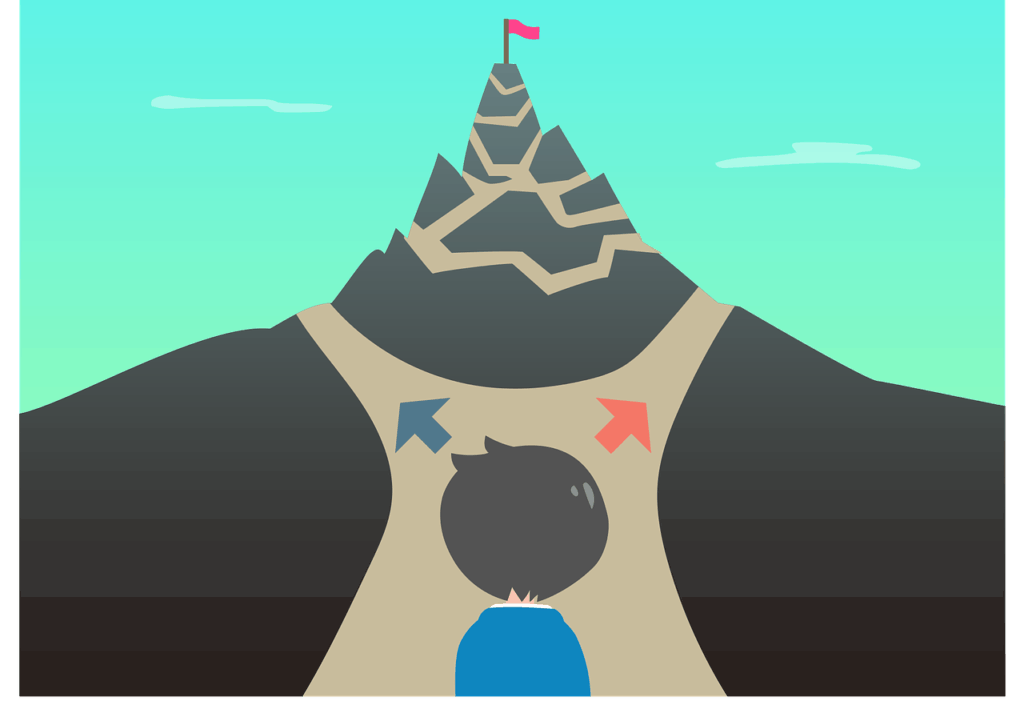Career Decision Making – How well do you know yourself?
In Ancient Greece if you wanted to ask a question of the oracle at Delphi you were faced with an inscription as you reached the temple of Athena – “gnothi seauton” which translates to know thyself.
To seek help from the oracles, you needed to know what you wanted first and why.
I find many of the people I talk with in my role as a Career Psychologist want to rush into Career Decision Making without much in-depth thought. Their focus is much more on the Extrinsic – the salary, and status rather than how it relates to who they are.
People who are more effective at Career Decision Making take the time to understand themselves better.
They know who they are and what they want. Just like for me, planning to downsize from a large house in the country. What I want is to be in walking distance of town and coffee shops/wine bars; to walk to the gym and cinema, and to have a balcony and a bit of a view. This cuts down on the property I view. You need to gain clarity for your Career Decision Making.
If you want to be effective at Career Decision Making here are areas you need to consider.
Career Decision Making 1 – Who am I?
Is this the biggie? Understanding personality? Whilst important, there are other things to consider as you read on. For now, let’s consider some key personality characteristics. Most personality assessments focus on the ‘Big 5’:
- Openness – if high you tend to be more adventurous and creative and if low less interested in change and with lower imagination.
- Conscientiousness – the extent to which you like structure, will prepare, and get things done.
- Extraversion – the higher your score the more you get your energy from being with other people, are seen as very sociable and the more likely you are to speak without fully considering what you say.
- Agreeableness – with a high score you tend to be more cooperative and with empathy, a lower score more competitive with less interest in others.
- Neuroticism – if you have a lot of this characteristic you may worry more, get upset, and feel stress and anxious. You are more stable and deal better with stress with a lower score.
Personality has roots in childhood, but we can change the outward presentation of what comes naturally to us. We can learn how to be, for example, more outgoing, and better structured in our work. Under stress it can be harder to maintain this. Understanding our natural style helps us be clearer on what situation will best support the natural us and how to adapt to working with others.
Whilst there are many free personality tests online, most come with limited explanation. Far better to talk your personality assessment results through with a psychologist who can help you understand your results in greater depth through a careful interpretation.
This understanding helps us be clear on how we work, what makes us feel anxious, how best to focus, how much time we want to spend with others.
Career Decision Making 2 – What am I really good at?
Not just the skills you have already amassed, it’s quite easy to learn more skills, but to think deeper. Consider not only the skills you are good at but also the ones that you want to continue to use. It’s helpful too to go beyond skills to understand your natural ability that can underpin your skills – is it creativity, problem solving (and what type), ease of using words and relating or technical expertise. You need an ability battery to fully understand this as the results are not always what you think.
Career Decision Making 3 – What’s important to me in life?
Is it really money and status? Whilst both can be important, most people who chase these find there is still something missing. What we need to understand is what are our Core Values – the 5 to 8 to give us clarity and focus in life. If you prioritise Adventure, Learning and Success you will make different choices to someone who chooses Security, Responsibility and Respect. You can use a values card sort or find an exercise on line, you need to prioritise them through a comparison exercise, this will get to your core values.
Career Decision Making 4 – What gets me excited?
Or interested, if you are not a ‘getting excited’ type of person. We have interests and hobbies, things we do now, things we did in the past. Sometimes it’s fantastic if we can combine these – you are a mechanic with an interest in classic cars, other times interests are best as something you use to switch off from work – dancing in my case. But clearly you want some interest in your work. So, an accountant may feel frustrated working in an engineering firm but feel much happier working for a fashion designer. Being clear on our interests can help us narrow down where we want to work and focus our job search.
Career Decision Making 5 – Life and Career Stage
These aren’t always congruent. Life events and a decision to retrain can move us back. Life can affect our choices – younger children at school can impact on where to live and stop a potential drop in salary to move to a desired career path. Recognising too that senior management is a step too far and you were happiest as a more independent internal consultant. Not everyone wants to climb the ladder to the top.
Career Decision Making 6 – Long term goals
… and finally, how does a career decision impact on wider life goals. Are you planning to move away, move to part-time work, study for a post grad qualification, want to focus on an iron man competition?







